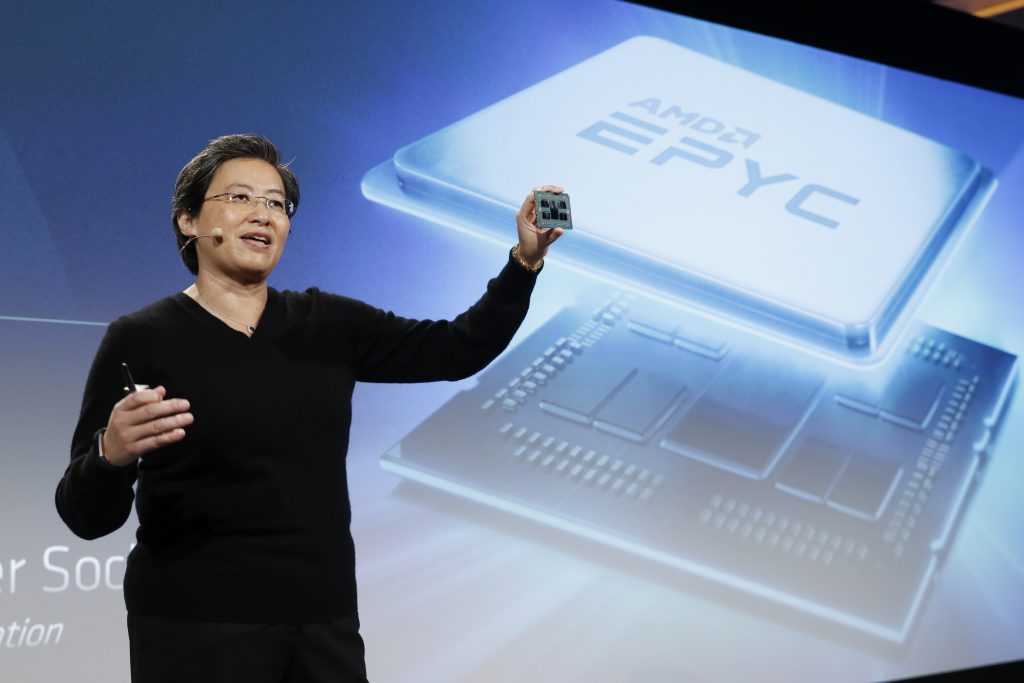Intel attempted to get ahead of the curve earlier this week, unveiling its 14nm 48-core Cascade Lake-AP Xeon processor for datacentres. Just one day later durings its Next Horizon event, AMD not only lifted the lid on its 7nm 64-core EPYC CPU within the Zen 2 family, but revealed that development of its 7nm+ Zen 3 and Zen 4 lines were also coming along nicely.
While Rome’s 64-core/128-thread count is double that of EPYC’s first-generation, Naples, CEO Lisa Su promised that users can also expect double the performance thanks to the switch to TSMC’s 7nm manufacturing process. AMD boasts that a single Rome EPYC chip can outperform Intel’s last-gen Xeon Scalable 8180M in dual-socket configuration when running the ray-tracing C-Ray benchmark, however this has yet to be confirmed via independent testing.

Rome takes a more modular approach than Naples, sporting a central 14nm I/O die with eight memory controllers and proprietary Infinity Fabric ports. These connect to 7nm “chiplets” either side that contain the CPUs. This supposedly bolsters communication between the chiplets to reduce latency, better interfacing with up to 2TB of external RAM per socket and its PCIe 4.0 channels.
One of AMD’s mainstay features is socket compatibility for those that have already adopted previous generation processors. Not only is Rome designed for backwards compatibility with Naples platforms, but will likely be forward compatible with the impending 7nm+ third-gen Milan in 2020.
Rome is currently sampling with customers now in preparation for the processors to debut in 2019. AMD’s refinement of the 7nm process supposedly sees Zen 3 on track for its 2020 launch, while Zen 4 is currently being designed.
KitGuru Says: AMD didn’t talk much about its consumer offerings, but seeing such a performance increase in the server market will surely spell good news for all Zen 2 processors. Hopefully we’ll hear more on AMD’s plans for the gaming market in the coming months.
 KitGuru KitGuru.net – Tech News | Hardware News | Hardware Reviews | IOS | Mobile | Gaming | Graphics Cards
KitGuru KitGuru.net – Tech News | Hardware News | Hardware Reviews | IOS | Mobile | Gaming | Graphics Cards


